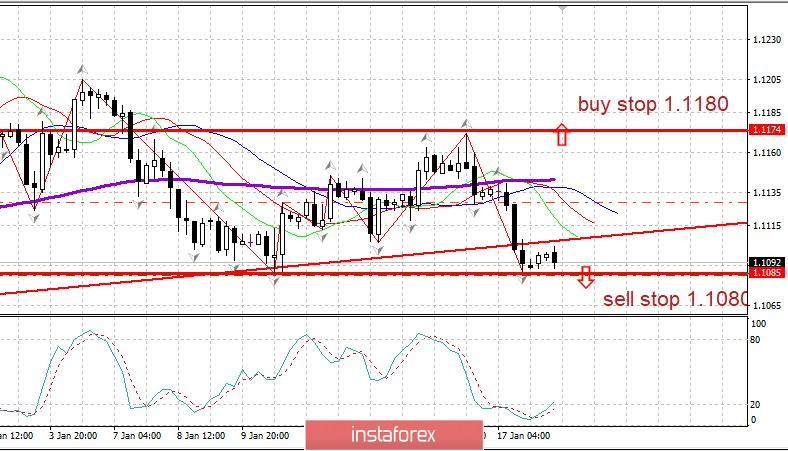
USA: We expect a weak activity in the afternoon of Monday for a day off in relation to the celebration of Martin Luther King Day.
The euro is pressed to the lower border of the range, where a breakout of 1.1085 is possible.
We sell from 1.1084.
In case of a u-turn, purchases from 1.1180.
Ahead is the ECB meeting to be held on Thursday, January 23.
About the Central Bank's policy:
We have been living in conditions of super-low rates of the main world central banks for 10 years. The Fed rate is at 1.625% which is higher compared to the Bank of England and the Bank of Japan rates. The ECB rate, on the other hand, is 0% with a deposit rate of -0.4% for banks.
For traders who have come to the market in the last 9 years, it may seem that low rates are infinite. But this is not true. Historically, the Fed rate over the past 100 years is an average of 4% and a 6% rate over the past 20 years. Rates have become almost zero when the global economy fought the Great Crisis of 2008-2009. Also, not only did all major central banks collapse rates to almost 0%, but they began to use non-standard methods, as well, pouring huge volumes of liquidity into the markets via QE and LTRO programs.
The ECB rate is historically lower than the Fed which did not exceed to 4%. This is due to the fact that the euro is still a young currency back in 2002. What is the reason for such low rates? This question was also asked by the legendary Alan Greenspan, head of the Fed. His hypothesis was that the suppression of inflation is connected with the Chinese government's policy of lowering the RMB exchange rate which removes inflation from the market.
Since raising interest rates by the Central Bank is always a tool to combat inflation and overheating of the economy. But, on the one hand, when inflation is low, rates do not rise. However, this cannot continue indefinitely (although it has been going on for 10 years). At some point, inflation will break out and force the Central Bank to raise rates.
Moreover, the situation is abnormal when the Central Bank rate is 0% or negative. The ECB's negative rate is a big problem for EU banks. It is clear that the rates on the European market are low, while customers will not place funds in the bank at zero or negative interest. Accordingly, for European banks, earning in such a market of super-low returns is not an easy business.
It is all the more important to see what the ECB will do at the meeting on January 23, next Thursday.





















